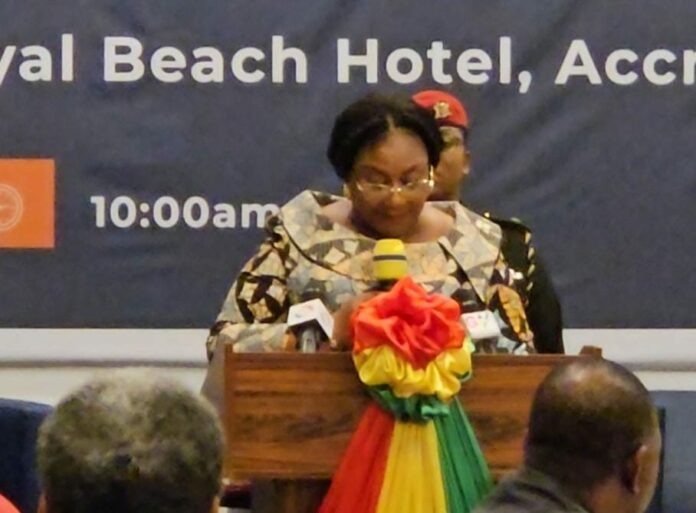The first lady, Rebecca Akufo-Addo has emphasized the need for interventions addressing system gaps that contribute to the persistent occurrence of fistula in Ghanaian women.
At commemorative event against obstetric fistula in Accra on May 23, she advocated for a holistic approach to address the country’s fistula-related impacts.
According to the Ghana Health Service, around 1,200 new fistula cases are recorded annually, with less than 20 of these cases being repaired.
Despite efforts by stakeholders, funding mobilization, system strengthening, and active case search and repair remain bottlenecks in addressing the incidence of fistula among women in Ghana.
And victims of the condition through no fault of theirs get to suffer the consequences for years.


Mary Anim, a 45-year-old fistula survivor, lived with the condition for 26 years until she received assistance for repairs four years ago. She developed the condition during childbirth.


“I thought I will die with it. I have tried everything. From churches to herbalists to hospitals and it didn’t work. My saddest moment was when I wake up and my bed is wet. I bought pampers to the extent that there is a woman at the Madina market who always asks of my child because I always buy diaper. Now I am a happily married woman,” she recounted.


For the first lady, Rebecca Akufo-Addo, women must not continue to face such adversity.
“Pregnancy and childbirth should be a positive experience for women. Ensuring women and their babies reach their full potential for health and wellbeing. It is important we address the barriers to healthcare that our people, especially mothers who make the ultimate sacrifice of producing the next generation face. We need to address the challenges related to gender equity in health decision making and long-term measures that will address the social culture and economic determinants of fistula. Malnutrition during pregnancy must be addressed.”


The UNFPA estimates that the typical cost of fistula treatment, including surgery and post-operative care, is over $700, which patients cannot afford.
The country representative to Ghana, Dr. Wilfred Ochan, outlined some areas government needs to have a relook.
“We also need to look at policies for training for gynecologists who can specialize for the kind of services needed for the repair of fistula. We also need polices that empowers girls and women and education is one. Policies around child marriage will also go a long way in addressing fistula,” he said.
In line with this year’s theme: ‘Breaking the Cycle: Preventing Fistula in Ghana,’ stakeholders are discussing key progress on obstetric fistula in Ghana, gaps in case mobilization strategies, and proper repair and reintegration of survivors.
By Sarah Apenkroh









